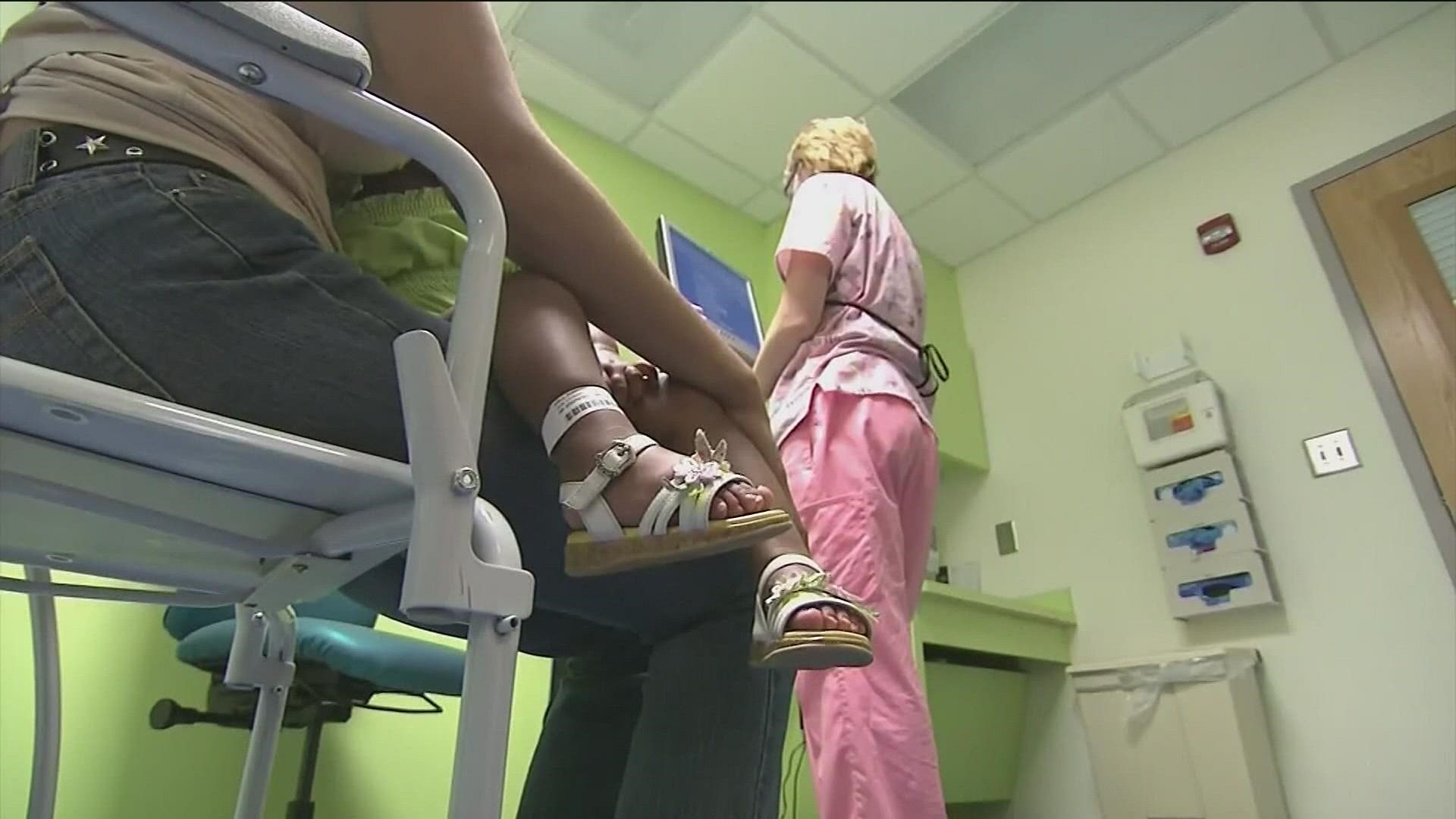ATLANTA — Health experts across the country continue to warn parents about the rising cases of RSV. Centers for Disease Control and Prevention (CDC) Director Dr. Rochelle Walensky said the south and southeast are just some areas experiencing high RSV rates.
The recent surge of the respiratory virus known as RSV was not anticipated, Dr. Walensky explains. Usually, RSV cases in the U.S. peak in late December to mid-February.
What is RSV?
According to the CDC, Respiratory Syncytial Virus, or RSV, is a common respiratory virus that usually causes mild, cold-like symptoms. While most people recover, RSV can be serious, especially for infants and older adults.
How can you protect from RSV?
Everyday measures, such as staying home when you are sick to protect others from catching your illness, washing your hands often and covering your coughs and sneezes, are simple ways to protect yourself, Dr. Walensky explains.
Wearing a mask can also better protect you against RSV.
"Consider wearing a mask because wearing a mask will protect you and your loved ones, not just from COVID-19, but from all respiratory viruses this season," Dr. Walensky said.
She recommends that parents and their children stay up to date with COVID-19 vaccines, including boosters and yearly flu shots. Taking children to receive both the COVID-19 and flu vaccines once they are eligible will also help prevent possible co-infection.
"We do see sometimes that children get co-infected with several of these viruses at once. We want to prevent that by getting those vaccines not only into those children but also into adults," Dr. Walensky said.
According to CDC guidelines, all children over six months are eligible for a COVID-19 vaccine and flu shot.
Is there a vaccine for RSV?
There is not yet a vaccine for RSV, but one is being developed, according to the CDC.
A medicine that can help protect some babies at high risk for severe RSV disease does exist. It's called Palivizumab.
Doctors prescribe Palivizumab to very premature infants and young children with certain heart and lung conditions.
Dr. Walensky said the most important thing people can do is be vaccinated against COVID-19 and the flu.
"What we really want people to do is to stay safe this holiday season. Get yourself and your loved ones vaccinated against influenza and COVID Bivalent booster," Dr. Walensky added.
How is the government helping hospitals overwhelmed by RSV cases?
The United States Department of Health and Human Services (HHS) is working with hospitals at overcapacity with RSV cases to provide surge support when needed, according to Dr. Walensky.
She said that some areas with the highest RSV rates, specifically in the south, are starting to trend down.

